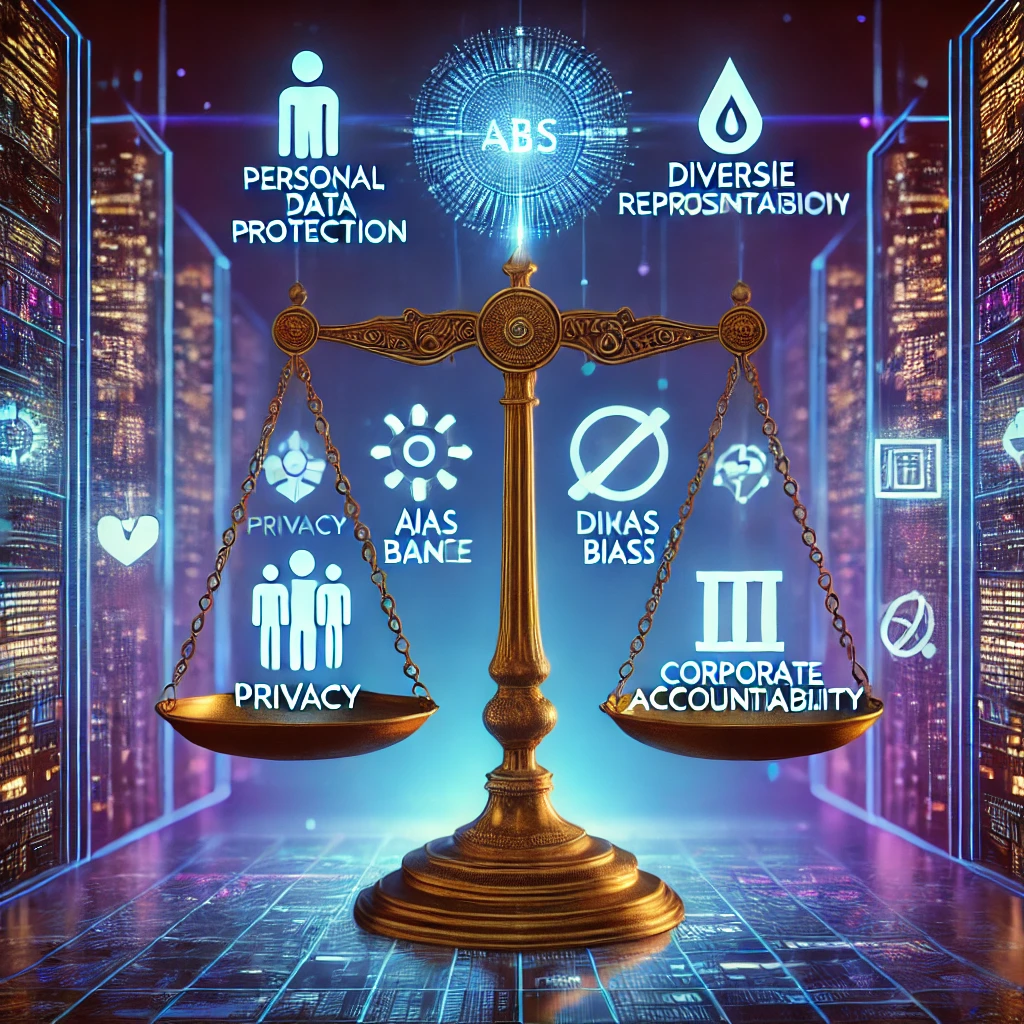
Introduction
Technology has become an inseparable part of modern life, influencing how we communicate, work, and interact with the world. While technological advancements bring countless benefits, they also raise ethical concerns that must be addressed to ensure fair and responsible use. Among these concerns, privacy, bias, and accountability stand out as critical areas requiring thoughtful navigation.
The Importance of Privacy in the Digital Age
Privacy is a fundamental right that has been significantly challenged by the rise of digital technology. As businesses, governments, and individuals increasingly rely on online services, the collection and use of personal data have become a major ethical issue.
1. Data Collection and Consent Many companies collect user data to enhance services, but questions remain about how much control users have over their personal information. Transparent policies and clear consent mechanisms are essential to ensuring ethical data collection.
2. Surveillance and Government Oversight Governments use surveillance for security purposes, but excessive monitoring can lead to violations of personal freedoms. Striking a balance between security and privacy is crucial to maintaining a free society.
3. Protecting Personal Data Cybersecurity threats, including data breaches and hacking, pose risks to individuals and organizations. Companies must implement robust security measures to protect sensitive information and prevent misuse.
Addressing Bias in Technology
Bias in technology, particularly in artificial intelligence (AI) and machine learning, has become a growing concern. Biased algorithms can reinforce existing societal inequalities, making it essential to develop fair and inclusive technological systems.
1. Bias in AI and Machine Learning AI models are trained on large datasets, and if these datasets reflect societal biases, the algorithms can perpetuate discrimination. Ensuring diverse and representative training data is key to reducing bias in AI.
2. Ethical Implications in Hiring and Law Enforcement AI is increasingly used in hiring processes and law enforcement. However, biased algorithms can lead to unfair hiring practices and discriminatory policing. Companies and governments must implement fairness audits to prevent biased decision-making.
3. Inclusive Design Practices Technology should be designed with inclusivity in mind. This means considering different demographics, cultural perspectives, and accessibility needs when developing new tools and platforms.
Accountability in Technology Development
With great technological power comes great responsibility. Holding companies, developers, and governments accountable for their technological actions is essential to building ethical systems.
1. Corporate Responsibility Tech companies must prioritize ethical considerations when developing new products. Implementing ethical guidelines and hiring ethicists can help ensure responsible innovation.
2. Transparency in Algorithms Black-box algorithms—where decision-making processes are unclear—can lead to unethical outcomes. Greater transparency in how algorithms operate can increase trust and accountability.
3. Legal and Regulatory Measures Governments must establish regulations that enforce ethical standards in technology. Policies on data protection, AI governance, and digital rights help create a framework for responsible technology use.
Striking a Balance: Ethical Solutions for a Tech-Driven World
While ethical challenges in technology are complex, solutions exist to navigate them responsibly.
1. Strengthening Digital Literacy Educating individuals about privacy rights, AI bias, and ethical technology use empowers them to make informed decisions and demand responsible tech policies.
2. Encouraging Ethical Tech Development Developers should follow ethical guidelines, conduct fairness assessments, and integrate diverse perspectives into technology design to prevent bias and misuse.
3. Collaboration Between Stakeholders Governments, tech companies, and civil society must work together to address ethical challenges. Open dialogue and cooperation can lead to innovative solutions that balance technological progress with ethical considerations.
Conclusion
As technology continues to evolve, ethical considerations must remain at the forefront of its development and implementation. Addressing privacy concerns, reducing bias, and ensuring accountability will help build a more fair and inclusive digital world. By fostering a culture of ethical responsibility, we can harness the power of technology while safeguarding fundamental human rights





